Today Current Affairs: 31st December 2021 for UPSC IAS exams, State PSC exams, SSC CGL, State SSC, RRB, Railways, Banking Exam & IBPS, etc
Table of Contents
Ken-Betwa Link Project:
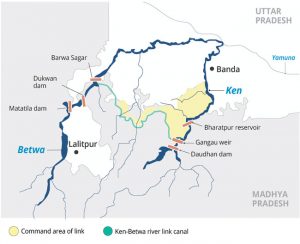
The Ken-Betwa river interlinking project will lead to the submergence of a major portion of the core area of the Panna Tiger Reserve in Madhya Pradesh, triggering a major loss of the tiger and its major prey species such as chital and sambar, according to a new study.
- The project may incur an estimated loss of 58.03 square kilometres (10.07 per cent) of critical tiger habitat (CTH) in the reserve.
- There will be an indirect loss of 105.23 sq km of CTH because of habitat fragmentation and loss of connectivity due to submergence, the study.
- The total area submerged would be 86.50 sq km, of which 57.21 sq km lies within Panna Tiger Reserve. This will account for 65.50 per cent of total submergence.
- The area that will be submerged due to the KBRIL Project has a rich floral density and diversity. Ungulates such as sambar, chital, blue bull and wild boar are found here.
- The Union Cabinet has approved the funding and implementation of the Ken-Betwa river interlinking project at a cost of ₹44,605 crore at the 2020-21 price level.
- The Centre would fund ₹39,317 crore for the project, with ₹36,290 crore as a grant and ₹3,027 crore as a loan.
- The project involves transferring of water from the Ken river to the Betwa river through the construction of Daudhan dam and a canal linking the two rivers, the Lower Orr Project, Kotha Barrage and the Bina Complex Multipurpose Project.
A defamation Case Has Been Filed Against Punjab Congress Chief Navjot Singh Sidhu:
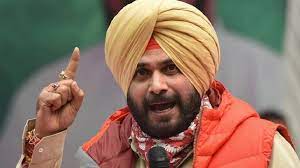
A defamation case has been filed against Punjab Congress chief Navjot Singh Sidhu for his speeches praising two party members for “being capable of making policemen wet their pants”.
- However, after the controversy, Sidhu said that the comment should not be taken literally. He said it’s a way of saying the Congress “wields authority”.
- Defamation is the communication of a false statement that harms the reputation of an individual person, business, product, group, government, religion, or nation.
- In India, defamation can both be a civil wrong and a criminal offence. The difference between the two lies in the objects they seek to achieve.
- A civil wrong tends to provide for a redressal of wrongs by awarding compensation and a criminal law seeks to punish a wrongdoer and send a message to others not to commit such acts.
- Criminal defamation has been specifically defined as an offence under section 499 of the Indian Penal Code (IPC).
- Civil defamation is based on tort law (an area of law which does not rely on statutes to define wrongs but takes from an ever-increasing body of case laws to define what would constitute a wrong).
- Section 499 states defamation could be through words, spoken or intended to be read, through signs, and also through visible representations.
- Section 499 also cites exceptions. These include “imputation of truth” which is required for the “public good” and thus has to be published, on the public conduct of government officials, the conduct of any person touching any public question and merits of the public performance.
- Section 500 of IPC, which is on punishment for defamation, reads, “Whoever defames another shall be punished with simple imprisonment for a term which may extend to two years, or with fine, or with both.”
Veerangana Lakshmibai:
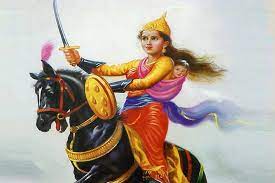
The Jhansi Railway Station in Uttar Pradesh will be known as Veerangana Lakshmibai Railway Station.
- The Uttar Pradesh government had earlier sent a proposal about renaming the station to the Union Home Ministry.
- The ministry consents to a name change of any station or place after obtaining no-objections from the Union Ministry of Railways, Survey of India, and the Department of Posts.
- These organisations confirm that there is no town or village in their records with a name that is similar to the proposed name.
- Once the name change is approved following an executive order, the Ministry of Railways will change the station code accordingly.
About Rani Lakshmibai:
- Born on November 19, 1828, as Manikarnika Tambe in Varanasi, UP.
- Rani was married to the King of Jhansi, Raja Gangadhar Newalkar in 1842.
- She had a son Damodar Rao, who died within four months of his birth. Following the death of the infant, her husband adopted a cousin’s child Anand Rao, who was renamed Damodar Rao a day prior to the death of the Maharaja.
- Lord Dalhousie refused to acknowledge the child and applied the Doctrine of Lapse, and annexed the state. However, the Rani refused to accept Lord Dalhousie’s decision.
- This led to a fight between the two. The Rani of Jhansi gave a tough fight to the British during the two weeks siege of the city.
- She fought bravely against the British and gave a tough fight to Sir Hugh Rose so as to save her empire from annexation.
- She died fighting on the battlefield on June 17, 1858.
PESA Act:
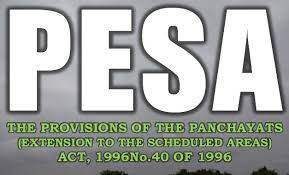
Hundreds of kendu leaf pluckers, binders and workers recently staged a demonstration in Sambalpur, Odisha demanding the abolition of GST on kendu leaves.
- A GST of 18 per cent is imposed on kendu leaves which is against the Forest Rights Act-2006 and the Panchayats (Extension to the Scheduled Areas) Act, 1996 (PESA) to celebrate 25th year of PESA Act.
- Besides, the government has imposed a GST of 28 per cent on bidi which is a finished product made of kendu leaf.
- This double taxation has hit the profits of kendu leaf organisation and affected the livelihood of around 12 lakh workers.
- While the profits have reduced drastically, they are now deprived of many social security benefits too.
About Kendu Leaves:
- Kendu leaf is called the green gold of Odisha. It is a nationalised product like bamboo and sal seed. It is one of the most important non-wood forest products in Odisha.
- The leaves are used to wrap bidis, a popular smoke among the locals.
- The Uniqueness of Odisha’s Tendu (kendu) leaf is in processed form whereas the rest of the states in India produce in Phal
- Traditional medical practitioners use these tiny fruits of Kendu to treat malaria, diarrhoea and dysentery.
- Kendu leaves are the major source for tribal villages, since it is the most prominent Minor Forest Produce of the state.
- Odisha is the third-largest producer of kendu leaf, after Madhya Pradesh and Chhattisgarh.
The Panchayats (Extension to Scheduled Areas) Act, 1996 or PESA Act is a law enacted by the Government of India for ensuring self-governance through traditional Gram Sabhas for people living in the Scheduled Areas of India.
- It was enacted by Parliament in 1996 and came into force on 24th December 1996.
- The PESA is considered to be the backbone of tribal legislation in India.
- PESA recognises the traditional system of the decision-making process and stands for the peoples’ self-governance.
- To promote local self-governance in rural India, the 73rd constitutional amendment was made in 1992. Through this amendment, a three-tier Panchayati Raj Institution was made into a law.
- However, its application to the scheduled and tribal areas under Article 243(M) was restricted.
- After the Bhuria Committee recommendations in 1995, Panchayat Extension to Scheduled Areas (PESA) Act 1996 came into existence for ensuring tribal self-rule for people living in scheduled areas of India.
- The PESA conferred the absolute powers to Gram Sabha, whereas state legislature has given an advisory role to ensure the proper functioning of Panchayats and Gram Sabhas.
- The power delegated to Gram Sabha cannot be curtailed by a higher level, and there shall be independence throughout.
Shakti Criminal Laws (Maharashtra Amendment) Act:
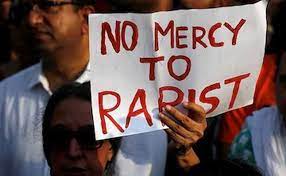
The Maharashtra Assembly passed the Shakti Criminal Laws (Maharashtra Amendment) Act unanimously. With the passage of the Bill, it became the second state in India after Andhra Pradesh to approve death penalty for heinous offences of rape and gangrape.
- The Act has amended the existing criminal laws to include death penalty as punishment in cases of rape and gangrape “in cases which have the characteristic of offence is heinous in nature and where adequate conclusive evidence is there and the circumstances warrant exemplary punishment, with death”.
- The existing law on rape had provisions for death penalty only in cases of repeated offences.
- The Act has also enhanced fines and punishment for offences of sexual violence against women and minors. Under the POCSO Act too, punishment for penetrative sexual assault in heinous cases has been enhanced to death penalty.
- The Act requires the trial in these cases to be conducted on a day-to-day basis and completed within 30 working days from the date of filing of the chargesheet.
- It also requires for the investigation to be completed within a month of the FIR which can be extended by another month by the concerned Special Inspector General of Police or Commissioner of Police only for specific reasons given in writing.
- In cases of grievous hurt caused due to acid attacks under Section 326A, the punishment has been enhanced to a minimum of 15 years which can be extended to the remainder of the natural life of the perpetrator along with fine.
- In cases of voluntarily throwing acid or attempting to throw it, punishment under section 326B has been enhanced to a minimum of seven years and a maximum of ten years.
- The fine amount in these cases will be towards medical expenses including plastic surgery and face reconstruction, the Act states.
Egypt As The Fourth New Member Of BRICS New Development Bank:

India has welcomed Egypt as the fourth new member of BRICS New Development Bank that was established by the BRICS countries six years ago.
- Bangladesh, UAE, and Uruguay joined in September 2021. Membership expansion enables New Development Bank to position itself as a premier development institution for emerging economies.
- The New Development Bank aims to mobilize resources for development projects in BRICS, emerging economies, and developing countries.
- The BRICS (Brazil-Russia-India-China-South Africa) set up the bank with an aim to mobilise resources for infrastructure and sustainable development projects in emerging economies.
- The bank is headquartered in Shanghai, China. The first regional office of the NDB is in Johannesburg, South Africa. The second regional office was established in 2019 in São Paulo, Brazil, followed by Moscow, Russia.
- The NDB said it has so far approved about 80 projects in all of its member countries, totalling a portfolio of USD 30 billion. Projects in areas such as transport, water and sanitation, clean energy, digital infrastructure, social infrastructure and urban development are within the scope of the bank.
Third Positive Indigenisation List:
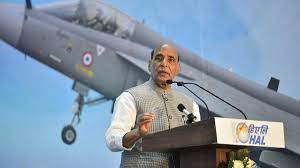
The Ministry of Defence (MoD) has restricted the import of 351 systems and components as a part of third Positive Indigenisation List to boost Indigenisation in Defence Manufacturing.
- In June 2021, the MoD had notified the second negative import list, renamed as the ‘positive indigenisation list’ of 108 items.
- The ‘First Negative Indigenisation’ List comprising 101 items was notified in August 2020.
Procurement:
- All the 351 items will now be procured from indigenous sources as per provisions given in Defence Acquisition Procedure (DAP) 2020.
- The DAP 2020 includes the following procurement categories: Buy (Indian – Indigenously Designed Developed and Manufactured), Buy (Indian), Buy and Make (Indian), Buy (Global – Manufacture in India) and Buy (Global).
- The import of 172 systems and components will be stopped from December 2022, while curbs on another batch of 89 items will come into effect from December 2023. The import of a further 90 items will be stopped from December 2024.
- It includes components such as a missile approach warning sensor, shells, propellants, electrical parts, missile containers, a torpedo tube launcher and a gun fire control system.
- This Atmanirbhar (self-reliance) initiative will save foreign exchange approximately equivalent to Rs 3,000 cr every year.
- It will give a boost to indigenisation with active participation of the public and private sector for fulfilling the twin objectives of achieving self-reliance. (Atmanirbhar Bharat) and promoting defence exports.
- Not only does the list recognise the potential of the local defence industry, it will also invigorate impetus to domestic Research & Development by attracting fresh investment into technology and manufacturing capabilities.
- It also provides an excellent opportunity for ‘start-ups’, as Micro, Small, and Medium Enterprises (MSMEs) will get a tremendous boost from this initiative.
Indigenisation of Defence
- Indigenisation is the capability of developing and producing any defence equipment within the country for the dual purpose of achieving self reliance and reducing the burden of imports.
- Self-reliance in defence manufacturing is one of the key objectives of Department of Defence Production.
- Defence Research Development Organisation (DRDO), Defence Public Sector Undertakings (DPSUs) and private organisations are playing a critical role in indigenisation of defence industries.
- India is among the world’s largest arms importers, and the armed forces are expected to spend about USD 130 billion on defence purchases over the next five years.
Nilgais:
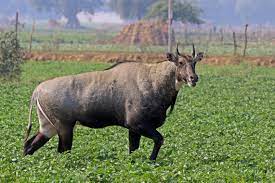
The Bihar government has announced that it will not cull the Blue Bull, locally known as the nilgai or ghurparas, anymore. It will, instead, sterilise them to control their increasing population in the state.
- The nilgai is the largest Asian antelope and is ubiquitous across the northern Indian subcontinent.
- The nilgai is the sole member of the genus Boselaphus and placed in the family Bovidae.
- Sexual dimorphism is prominent; the males are larger than females and differ in colouration.
- It occurs in India, Nepal, and Pakistan. Significant numbers occur in the Terai lowlands in the foothills of the Himalayas.
- It is indigenous to the Indian subcontinent.
- IUCN status: Least Concern.
Digital Lending:
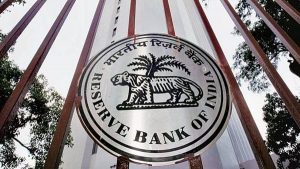
A Reserve Bank of India (RBI) Working Group (WG) on digital lending, including lending through online platforms and mobile apps submitted its recommendations in November this year.
Key recommendations:
- A separate legislation should be enacted to oversee such lending.
- Setup a nodal agency to vet the Digital Lending Apps.
- A Self-Regulatory Organisation should be set up for participants in the digital lending ecosystem.
- Develop certain baseline technology standards and compliance with those standards as a pre-condition for offering digital lending solutions.
- Disbursement of loans should be made directly into the bank accounts of borrowers and servicing of loans should be done only through the bank accounts of the digital lenders.
- All data collection must require the prior consent of borrowers and come ‘with verifiable audit trails’ and the data itself ought to be stored locally.
- Digital lending has the potential to make access to financial products and services more fair, efficient and inclusive.
- From a peripheral supporting role a few years ago, FinTech-led innovation is now at the core of the design, pricing and delivery of financial products and services.
FSSAI Draft Regulations For GM Foods:

Social activists working among farmers have come out against the Food Safety and Standards Authority of India’s (FSSAI) draft regulations on genetically modified (GM) food, terming it “unacceptable”.
- They want FSSAI to explicitly say that GM foods will not be allowed into India by way of production or imports.
- Because, according to them, any kind of GM food in India is a threat to the health of our people, to our environment, and to the diverse food cultures of India.
- The Food Safety and Standards Authority of India (FSSAI) has released draft regulations for GM foods.
- The Draft proposed that all food products having individual genetically engineered ingredients of 1% or more will be labeled as “Contains GMO/ingredients derived from GMO”.
- Activists claimed this as a tacit approval to import of GM food instead of prohibiting them.
Overview of the Draft:
- No one can manufacture or sell any food products or food ingredients derived from genetically modified organisms (GMOs) without prior approval.
- Specifies norms that labs will need to adhere for testing GM foods.
- The proposed regulations will apply to “Genetically Modified Organisms (GMOs) or Genetically Engineered Organisms (GEOs) or Living Modified Organism (LMOs) intended for direct use as food or for processing.”
- The regulations’ ambit will include food products that may have been made using food ingredients or processing aid derived from GMOs, even if GM content is not present in the end-product.
- Genetically Modified Organisms or Genetically Engineered Organisms “shall not be used as an ingredient” in infant food products.
- The draft also proposes labeling norms for food products that contain one per cent or more than one percent of GMO content.
GMO regulation in India:
- The task of regulating GMO levels in imported consumables was initially with the Genetic Engineering Appraisal Committee (GEAC) under the Union environment ministry.
- Its role in this was diluted with the enactment of the Food Safety and Standards Act, 2006 and FSSAI was asked to take over approvals of imported goods.




